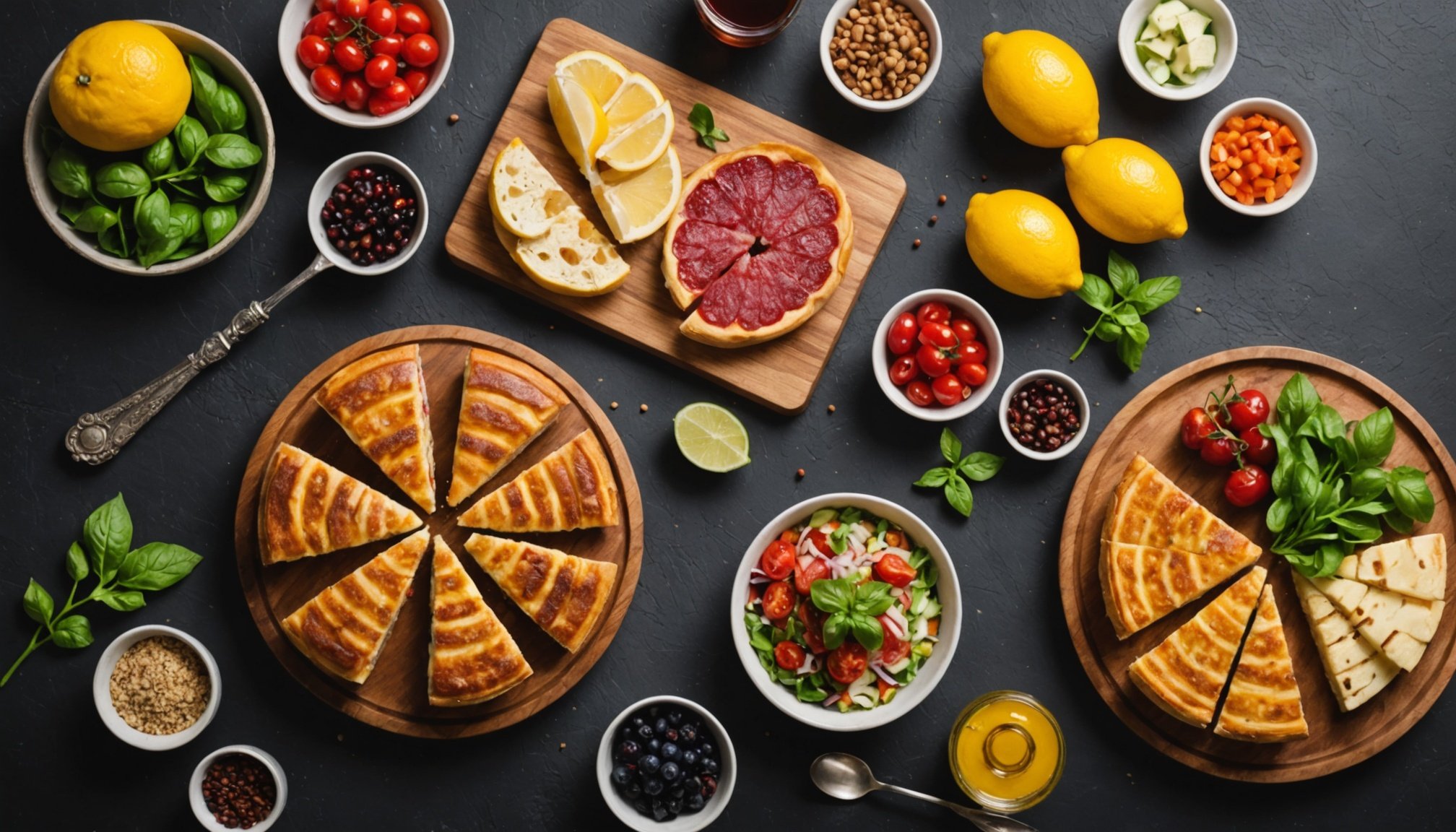Understanding UK Import Regulations
Navigating the intricate UK import laws necessitates a clear grasp of the legal requirements that oversee the food industry. Compliance with these import regulations is paramount for any business importing food products, especially in such a tightly regulated market as the UK. The legal requirements serve to ensure that imported food items are safe for consumption, protecting public health and maintaining high consumer trust.
At the heart of these regulations is adherence to standards set by key regulatory bodies. The Food Standards Agency (FSA), for instance, plays a crucial role in ensuring that the food items meet the required safety standards before they enter the UK market. Another vital entity is the Department for Environment, Food & Rural Affairs (DEFRA), which oversees agricultural imports, ensuring they adhere to environmental standards.
Also to see : Mastering UK Financial Services Compliance: A Vital Guide for Aspiring Fintech Innovators
Here’s why it matters: non-compliance can lead to severe penalties, product recalls, or bans from entering the UK market altogether. Importers must stay informed about the legal requirements and continually update their knowledge to keep pace with evolving standards. By doing so, importers not only avoid legal hurdles but also build a reputation for reliability and safety in the competitive UK food market.
Specific Regulations for Gourmet Foods
The importation of gourmet foods into the UK is subject to stringent regulations. Food safety standards are designed to safeguard consumers and maintain product integrity. The UK’s food standards mandate that gourmet products meet specific quality control measures. Importers must ensure adherence to these requirements to prevent import challenges.
Additional reading : Startup Success Guide: Mastering Intellectual Property Law in the UK
Quality control doesn’t just guarantee safety; it upholds the product’s unique attributes and flavor profiles. Importers handle luxury items like truffles, cheeses, and specialty oils, which require enhanced preservation methods and storage conditions to comply with UK regulations. It’s vital to follow guidelines about labeling, packaging, and sanitary transit procedures, which the Food Standards Agency (FSA) oversees.
When importing gourmet items, seeking to source high-quality ingredients is non-negotiable. Not only does this ensure compliance, but it also maximizes market potential by meeting discerning consumer expectations. Products must be traceable to ensure accountability and authenticity from source to sale. This level of diligence is imperative for success in the competitive gourmet food sector.
By maintaining a high standard, importers align with regulations while appealing to a sophisticated clientele, ready to pay a premium for excellence. Understanding and adhering to these detailed specifications ensures both compliance and quality, securing a place in the UK’s gourmet market.
Common Pitfalls in Importing Gourmet Foods
Navigating the import regulations for gourmet foods can be challenging. Despite the food import guide resources available, many importers encounter compliance issues due to misunderstandings or oversight. A frequent error involves neglecting stringent food standards, particularly concerning documentation. Importers sometimes overlook necessary paperwork which is crucial yet often intricate. This oversight can result in delays or even prohibition of goods from entering the UK market.
Another common mistake involves misinterpreting quality control requirements. Gourmet items necessitate meticulous care in sourcing and preservation. Failing to adhere to these standards not only violates import regulations but also risks product spoilage during transit. Strategies to mitigate these import challenges include engaging with experienced customs brokers and maintaining clear records of each step in the import process.
Real-life examples illuminate these pitfalls. A notable case involved a cheese importer who suffered financial losses due to inadequate refrigeration, breaching quality standards. Importers should prioritize understanding the nuances of regulations and maintaining a proactive approach to stay ahead of potential compliance issues. Utilizing checklists and regular training can help importers anticipate and address these common errors effectively.
Compliance Tips for Successful Import
Importers seeking to successfully navigate the UK import laws for gourmet foods should prioritize robust compliance strategies. Following the most effective best practices is crucial in maintaining a smooth and legal import process. Here are some food import tips to help you stay compliant:
-
Regularly consult official guidelines from bodies like the Food Standards Agency to remain updated on import regulations. Regulatory requirements can shift, and proactive engagement with these updates is essential.
-
Invest in technology tools and software designed for compliance tracking. These can automate documentation management, alert you to upcoming changes in legislation, and ensure you meet all necessary legal requirements efficiently.
-
Attend industry-specific seminars and workshops regularly. Such events often offer insights into the latest compliance strategies and provide networking opportunities with experts and other importers who can share best practices.
By leveraging these best practices and resources, importers can efficiently handle compliance issues, reduce the risk of costly mistakes, and maintain a reputable standing in the UK gourmet food market. This method not only mitigates compliance risks but also enhances the overall business strategy, paving the way for successful importing ventures.
Resources for Navigating UK Import Regulations
Navigating the complex world of UK import laws requires reliable resources. Understanding official guidelines is crucial for compliance in import regulations. Here are some valuable resources to assist importers:
Official Government Websites
Government websites provide direct access to legal requirements for food imports. Utilizing these sites ensures importers have the most current information about regulatory changes.
Industry Associations and Support Groups
Industry associations often offer resources tailored to members, providing insights into UK import laws. These groups often alert members about updates in regulations and offer forums for discussion.
Educational Workshops and Seminars
Workshops and seminars present importers with opportunities to engage one-on-one with experts. These events often cover intricate details of legal requirements, offering a platform to resolve questions that online guides might overlook.
By leveraging these regulatory resources, importers can stay informed and compliant. Engaging with both official and community resources can boost confidence and ensure that businesses align with evolving UK import regulations. Staying connected to these networks can equip importers with the knowledge and tools needed to navigate the UK’s rigorous import landscape effectively.
Step-by-Step Guide to Importing Gourmet Foods
Successfully navigating the UK import process for gourmet foods requires meticulous preparation. Let’s explore the necessary steps involved.
Preparing for Import
Before importing, ensure that all necessary documentation is in order. Key documents include an import license, health certificates, and proof of origin. These certify that your products meet the UK’s stringent food safety standards.
Understanding Tariffs and Taxes
Understanding tariffs is vital. The import tariffs and taxes applicable can influence your pricing strategy. Familiarising yourself with the UK’s tax rates helps avoid unexpected costs. UK tariffs may vary based on product type, origin, and value. Consult the UK Tax Office for the most current rates.
Navigating Customs Procedures
Customs can be complex. Breaking down the customs procedures into manageable steps ensures smoother operations. Start by submitting an Import Declaration to HMRC. Follow this with any necessary inspections or approvals from relevant regulatory bodies, like the FSA. Collaboration with experienced customs brokers can simplify this process.
Effective navigation of these steps forms the backbone of a successful import venture. Integrating these practices into your operations ensures compliance and enhances efficiency, crucial for meetings the demands of the sophisticated UK gourmet market.






